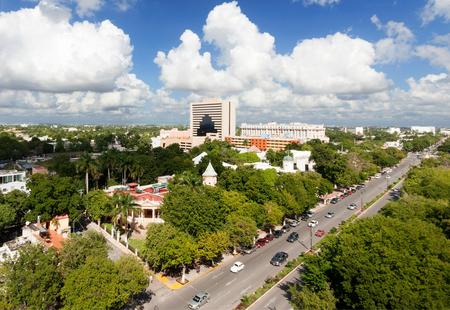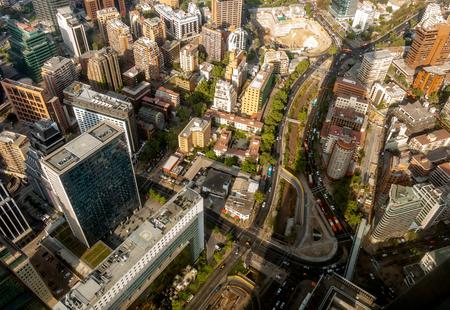Available in Español and Português.
We connected Latin American governments and businesses across a series of three forums to discuss zero emission transport in the region.
Here’s what we learnt:
1. Zero emission mobility is trending
More countries in Latin America are setting electromobility objectives as part of their wider climate change strategies. This includes ambitions to deploy charging infrastructure, electrify public fleets and deliver campaigns to educate people on the value, opportunity and need for zero emission transport.
Governments are witnessing the benefits of large-scale public fleet electrification, particularly looking at the positive impact on air quality and user experience. Leveraging these ‘people benefits’ is crucial to shift the electric transition up a gear.
However, there are challenges across the region. The main ones being:
- EVs are expensive. There are a lack of financial incentives and policies to increase demand from the public for individual vehicles.
- Public transport is a public investment which comes at a high cost for the government.
- The region lacks charging infrastructure. Where it does exist, there’s no standardisation or consistency.
2. Electromobility corridors can streamline EV action
Some regions have set up electromobility corridors to concentrate charging infrastructure, funding and specific route upgrades.
For example, in July 2022 the Mexican state of Yucatán approved financing for up to $86m for a 100km electric bus corridor in the capital Mérida (BNamericas, 2022)
Forum participants discussed that for electromobility corridors to work, governments should:
- Start by electrifying government fleets.
- Install a mix of fast and slow chargers.
- Invest in infrastructure for public transport to charge during the night.
- Engage with the private sector on regulatory matters and to understand charging needs.
- Collaborate with the private sector to find new financing and business models, for example, to install charging infrastructure.
The ZEV Community forums were an enriching experience, especially for someone just starting to get to know the subject in depth. The panels were inspiring and very well curated. The discussions were quick and engaged the audience - a very positive point. The exchange of experiences with other countries is essential for the development of programs and projects.
The ZEV Community forums were an enriching experience, especially for someone just starting to get to know the subject in depth. The panels were inspiring and very well curated. The discussions were quick and engaged the audience - a very positive point. The exchange of experiences with other countries is essential for the development of programs and projects.

3. Public fleets are a common starting point for governments
Given high levels of control and visibility, most EV pilot projects and trials start with electrifying public fleets.
Innovative business models in the Latin American region have helped to make these projects a success.
A report from C40 Cities and IFC explains how municipalities in Chile and Colombia have created a model that ‘unbundles’ ownership from the operation of electric buses. In other words, “asset owners own and operators operate” (C40 Cities and IFC, 2020).
And according to the report authors, “…the unbundles model represents a more sensible allocation of risk and reward between the public and private sector based on what each does best” (C40 Cities and IFC, 2020).
The ZEV Community Forums were a great opportunity to present our electromobility strategy to a group of governments seeking to promote more ambitious policies and support the private sector with our vehicle fleet electrification plans. Alliances are essential to achieve our goals and overcome challenges.
The ZEV Community Forums were a great opportunity to present our electromobility strategy to a group of governments seeking to promote more ambitious policies and support the private sector with our vehicle fleet electrification plans. Alliances are essential to achieve our goals and overcome challenges.
4. It’s not all talk, there is EV action
The Government of Chile is a shining example of this. In 2021, it launched its National Electromobility Strategy which established that 100% of light and medium vehicles, public transport and large machinery sold will be zero emission by 2035 (Government of Chile, 2021).
With a focus on transitioning its public fleet at a national level, the country is showing leadership by developing clear models of legislation and implementation. Chile is one of the countries with the largest fleet of urban buses (UNEP, 2019). The government has various programs focused on accelerating the conversion of bus and taxi fleets. It's also implementing energy efficiency standards and working to improve the interoperability of charging infrastructure.
However, there are challenges with making EVs available. Chile is solely reliant on EV imports, and therefore vulnerable to wider shocks and dips in the market.

5. Education is at the heart of a successful EV transition
Businesses from our EV100 initiative joined governments at our final forum. Together, they agreed on one clear priority: raising public awareness of the environmental necessity of EVs.
Younger generations are a key target for these campaigns, having a greater open-mindedness to new environmentally friendly technologies.
Connecting governments with businesses was all about inspiring ambition, aligning action and pushing policymakers to provide clear political and legislative direction.
Participating in the ZEV Community Forums was very enriching. We obtained the necessary tools to plan ideas for projects from the area to which I belong. Together with other colleagues, it was a way of sharing knowledge and areas of opportunity for improving mobility in the State. We had the opportunity to hear from the private sector the projects that are being devised for an improvement in electromobility in the Latin American region.
Participating in the ZEV Community Forums was very enriching. We obtained the necessary tools to plan ideas for projects from the area to which I belong. Together with other colleagues, it was a way of sharing knowledge and areas of opportunity for improving mobility in the State. We had the opportunity to hear from the private sector the projects that are being devised for an improvement in electromobility in the Latin American region.
Next steps
At Climate Group, we’re leveraging our networks across the public and private sector to accelerate climate action towards net zero emissions by 2050. This collaborative activity between the ZEV Community and EV100 is an example of many more opportunities we want to create for engagement and collaboration within our whole Transport System.
We hope to continue these ZEV Community Forums, bring more governments and business to the virtual room, host conversations on the most pressing topics, and maximise our impact to drive the ZEV transition further and faster.
Please get in touch if you’d like to support the ZEV Community work in the future.
